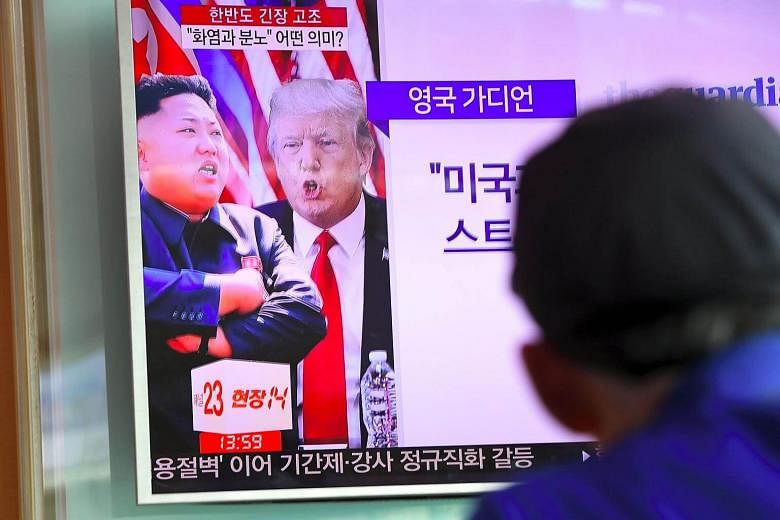SEOUL (BLOOMBERG) - US President Donald Trump's warning of "fire and fury" to deal with North Korea has rattled global markets.
If war were to break out, the biggest toll would be the humanitarian one. But it would shake the global economy, too.
An analysis by Capital Economics found that the supply and production of everything from smartphones and cars to flat screen televisions would take a significant hit, hurting growth around the world and pushing up prices.
That is because South Korea is embedded in a supply chain that feeds production of electronic appliances.
Here are some of the channels.
South Korea is the biggest producer of liquid crystal displays - used in televisions and other electronic devices - and accounts for 40 per cent of their global production.
It is the second biggest maker of semi-conductors - used in smartphones - with 17 per cent of market share.
The Asian nation is also one of the world's biggest car makers and is home to the globe's three biggest ship builders.
"If South Korean production was badly damaged by a war there would be shortages across the world," economists Gareth Leather and Krystal Tan wrote in a note. "The disruption would last for some time - it takes around two years to build a semi-conductor factory from scratch."
Then there is the risk to shipping lines. Any conflict would likely gum up major routes along the eastern seaboard of China, the world's biggest trading nation.
"If it became too risky for container ships to enter and exit Chinese ports, it would cause even further disruption to the global economy," according to Capital Economics.
For the United States alone the costs could be profound. Federal debt would likely be pushed higher to fund the cost of fighting the war and to pay towards reconstruction costs.
If the US were to spend proportionally the same amount on any reconstruction on the Korean peninsula as it did in Iraq and Afghanistan, national debt would soar by another 30 per cent, according to the Capital Economics analysis.
Of course, the region is not at the point of conflict and some analysts say the scare is overdone. They point to previous periods of tension that eventually eased.
It is not even clear how any military conflict would play out given the diversity of potential actors involved.
Still, even in the absence of military action, heightened tensions are already bad news for North Asian growth, according to Bloomberg Intelligence.
"For South Korea, the overhang of uncertainty dents confidence - threatening a blow to investment and hiring. For Japan, a stronger yen hits corporate earnings and the Bank of Japan's reflation plans."

